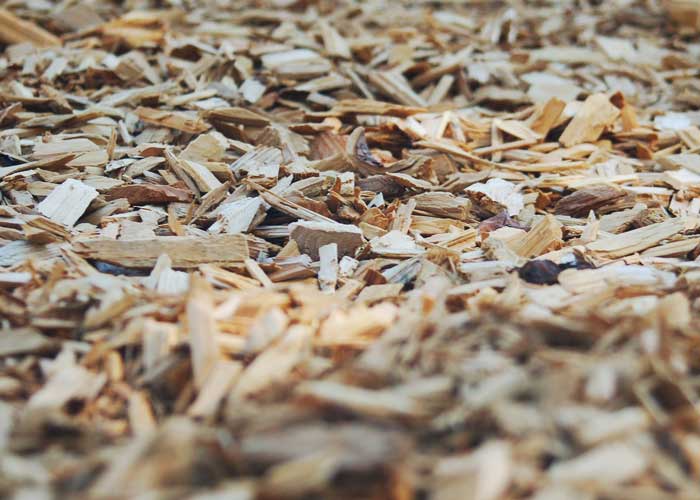Benefits of Using Mulch
A Gardener's Best Friend
Mulch offers gardens many benefits, and with a range of different types of mulch available, one must decide on the best mulch for their situation and how it should be applied.
Prevents Weeds - Weeds are a persistent problem in the garden as: 1) Weed seeds germinate easily when exposed to sunlight. 2) Weed seeds spread rapidly. 3) Weeds can survive in very harsh conditions. The best method of weed eradication is stop the seeds from germinating in the first place. Mulch will prevent sunlight from reaching weed seeds that are sitting in the soil, and make it difficult for seeds on the mulch from getting in contact with the soil.
Once a garden bed is mulched and established, any weeds that do manage to grow will be easily removed, as their roots will not have a firm grip in the soil, which should be damp due to improved water retention.
Conserves Moisture - Healthy plants love consistent levels of moisture in the soil. Plants and shrubs growing in harsh, dry condtitions become stressed and susceptible to disease and insects. Bare soil loses moisture quickly. A layer of mulch acts as a buffer, keeping the moisture in the soil, while minimising evaporation. By increasing the soil's ability to retain moisture, mulch reduces the frequency of watering. Mulch also acts as an insulating layer on top of the soil, keeping growing conditions cooler in summer and warmer in winter, with less extreme soil temperatures.
Mulch Feeds the Soil - Organic mulches decompose over time, adding rich nutrients to the soil, acting like a natural fertiliser. Mulch also creates food for micro-organisms and worms, which thrive in the humus-like conditions. These micro-organisms help loosen the soil, improving air and water flow, and stimulating root growth - all major benefits for improved plant growth.
Natural Appearance - Applying mulch simulates the natural forest like conditions shrubs and trees thrive in, and gives gardens an attractive, well-maintained and finished appearance.
Forest Mulch
Arborists generally supply two types of mulch - Fresh Forest Mulch and Aged Forest Mulch. Both vary in how, when and where they can be successfully used in garden landscaping.
Fresh Garden Mulch consists of all organic material that the arborist has been put through the wood chipper. Fresh Forest Mulch is either left on site for the home owner to use after tree pruning or removal, or delivered straight from an arborist job.
Fresh Forest mulch should be stored and regularly turned for at least 12 months before use, which will give any harmful tannins that may be present, time to leech into the ground. The mulch is also given time to begin decomposition, after which nutrients are released from the soil. During the decomposition phase, fresh mulch needs nitrogen, so if applied immediately to garden beds, the mulch will deplete the soil of nitrogen unless a nitrogen-based fertiliser is applied to the ground beforehand. Decomposing mulch get's very hot and can dry out the soil beneath it. Fresh mulch should never be used around new plants and shrubs that are yet to become established.
The seeds of many trees can be included in fresh mulch, which will germinate when applied to your garden, This is of particular concern when the seeds are of noxious trees such as the Umbella, Camphor Laurel and African Tulip. Tree seedlings can be more difficult to remove than weeds, Allowing fresh mulch sit for 12 months will kill most seeds due to the heat generated within the mulch.
Aged Garden Mulch is also a by-product of the tree care industry consisting of mulched limbs, branches and trunks from varying species of hardwood trees, which have been left to age. After 12 months "curing", Aged Forest Mulch has began decomposing, and ready to release nutrients into the soil. Properly Aged Forest Mulch should be free of tannins abd live weed/tree seeds. Being partly decomposed, the mulch will not get hot and burn plants.
Tub Ground Mulch - a course, stringy mulch processed during land clearing. This mulch consists of tree material, soil, and any rubbish found on sites being cleared for development. Weed prevention is poor due to high soil content. Water evaporation is poor due to the high percentage of fine organic material in the mulch, which soaks up water, preventing moisture reaching the soil. The appearance is poor due to high rubbish content, so Tub Ground Mulch is basically suitable for industrial use only such as erosion prevention.


